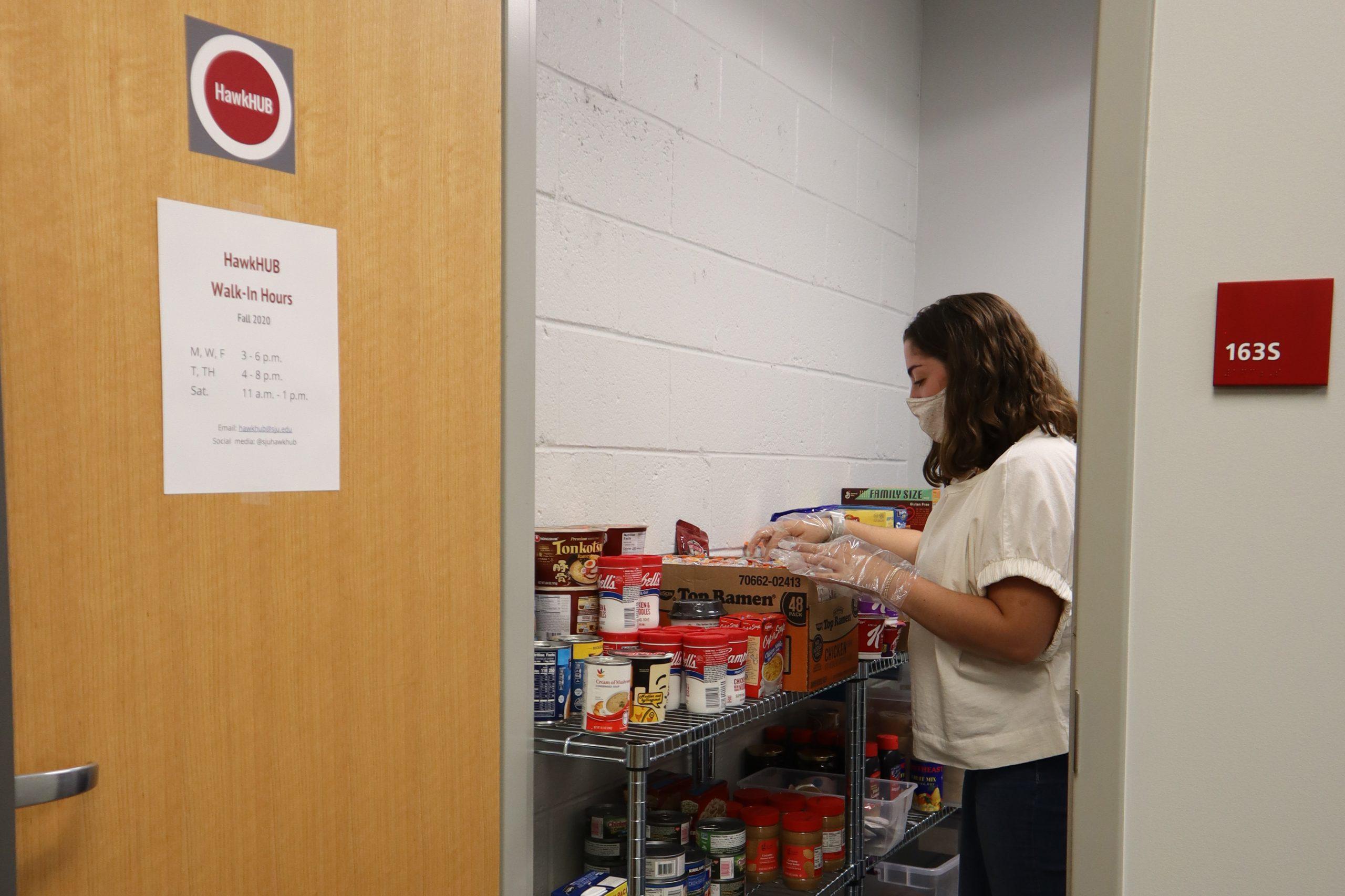Certain St. Joe’s students are now qualified to receive help buying food using funds from the Supplemental Nutrition Assistance Program (SNAP) due to a temporary extension of eligibility requirements amid the pandemic.
The U.S. Department of Agriculture’s (USDA) Food and Nutrition Service released an update on Jan. 16 introducing the temporary expansion of SNAP benefits to students enrolled at least half-time who meet one of two requirements. They must either be eligible for State Work-Study or Federal Work-Study (FWS) or have an expected family contribution of $0 during the academic year.
The new requirements differ from prior conditions, as students with FWS were only eligible for SNAP if they were actively working an FWS job.
Susan Clampet-Lundquist, Ph.D., professor of sociology, said this change in SNAP eligibility will be helpful for students in need, not only physically but mentally.
“Imagine a student who might be able to [receive] that extra help. Thinking ‘How am I going to afford to eat this week?’ is one less thing that student has to be anxious about and have to think about,” Clampet-Lundquist said.
Though food insecurity is a long-standing issue, it has worsened amid the coronavirus pandemic over the past year. More people than ever have turned to food pantries and an Electronic Benefits Transfer card from SNAP to make food purchases, according to Keith Brown, Ph.D., associate professor of sociology.
“[The pandemic] is making the issue of food insecurity on all of our radars,” Brown said.
According to a July 24, 2020 report from the Centers for Disease Control and Prevention (CDC), minority communities are more susceptible to issues like food insecurity, beyond specific health risks from the coronavirus pandemic.
“Social determinants of health have historically prevented [racial and ethnic minority groups] from having fair opportunities for economic, physical and emotional health,” according to the CDC. “Inequities in the social determinants of health, such as poverty and healthcare access, affecting these groups are interrelated and influence a wide range of health and quality-of-life outcomes and risks.”
In November 2020, the Pennsylvania Department of Human Services reported that enrollment for SNAP in Philadelphia increased 5.6% since February 2020, with a total of 1,834,008 people enrolled in the program. The USDA reported in September 2020 that 42,917,341 people nationwide were enrolled in SNAP.
Maddie DeMarco ’22 is the president of HawkHUB, an on-campus food and basic needs resource center for students, faculty and staff at St. Joe’s. She said SNAP’s new inclusion of a wider range of students in need is an important step forward in helping student populations who are struggling.
“The assumption lies in the idea that a lot of times your parents are helping you pay for school and people at colleges aren’t [going] hungry,” DeMarco said. “A lot of the time, students have to sacrifice eating and meeting their basic needs to get the education that they want to get.”
Dylan Judge ’20, co-treasurer for HawkHUB, conducted research last year with Becki Scola, Ph.D., professor of political science, and fellow research assistant Christine DiSanti ’21, about food insecurity on college campuses. Judge said a lack of knowledge about available resources prevents students from getting the help they need.
“One of the big issues is that people don’t even know that they’re eligible for these benefits,” Judge said. “It’s mainly the younger generation and the elderly that are missed, and a lot of people in the middle ground who just don’t know that they qualify for it.”
Brown said food insecurity issues on a campus like St. Joe’s are too often invisible or overlooked.
“Sometimes at a place like St. Joe’s, where the student population is relatively wealthy and the people who are working here have solid jobs, we miss the people who are in our own community who are struggling with food insecurity,” Brown said.
Brown invited guest speaker Jackie DeCarlo, CEO of the Manna Food Center, to speak to his class Feeding Philadelphia on Feb. 8. The Manna Food Center focuses on food distribution for residents in Montgomery County, Maryland. DeCarlo said she fully supports the expansion of SNAP.
“This is a program that we wholeheartedly support, so if it’s expanded such that more people can get it or more money is in people’s pockets, then that’s a good thing,” DeCarlo said. “[SNAP] really keeps people out of deep poverty, and it lifts people up.”
DeMarco said including more students in a program like SNAP “dismantles the notion” that students who attend college are automatically able to afford basic needs, especially at a school with a student population as affluent as St. Joe’s.
“There are people in our own community that need just as much help as people in the outside communities,” DeMarco said. “It’s important that we’re contributing to helping those in our own community while also serving with and for others outside of the community.”








































